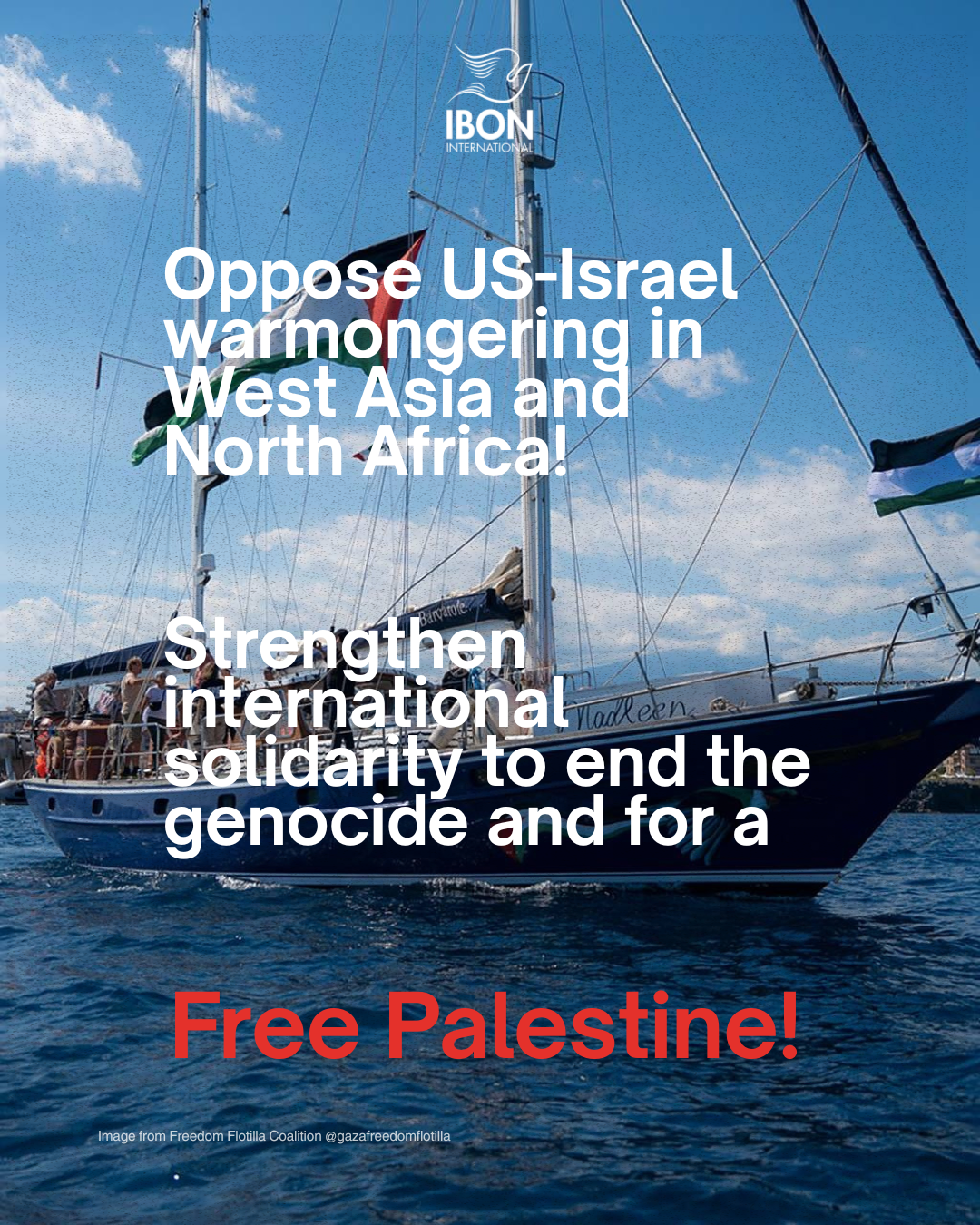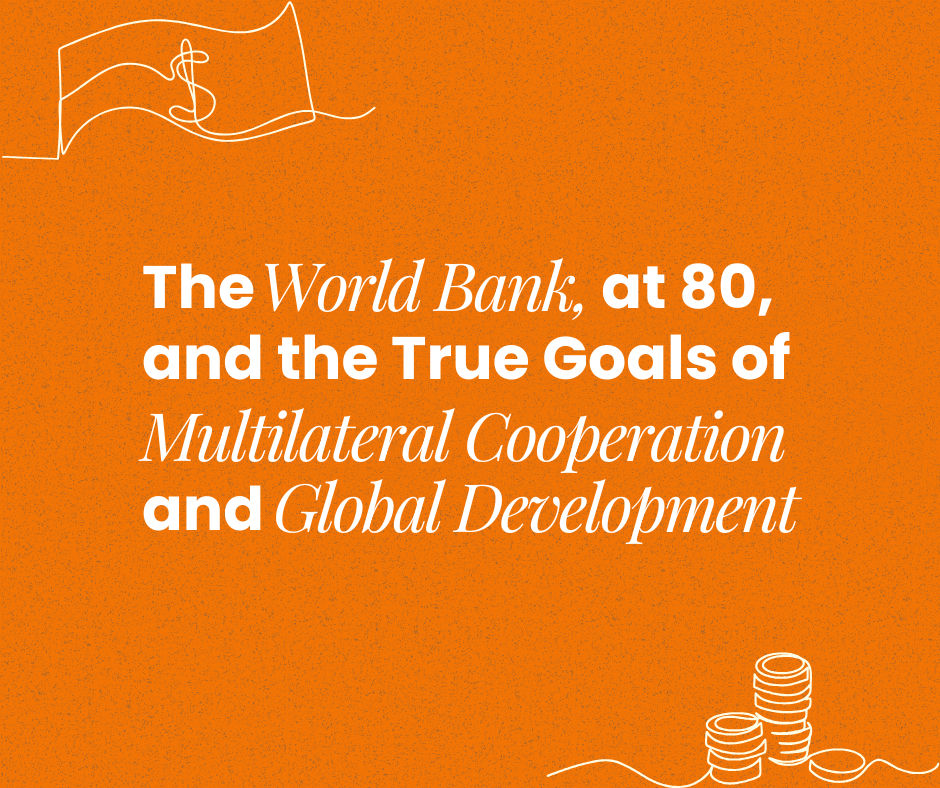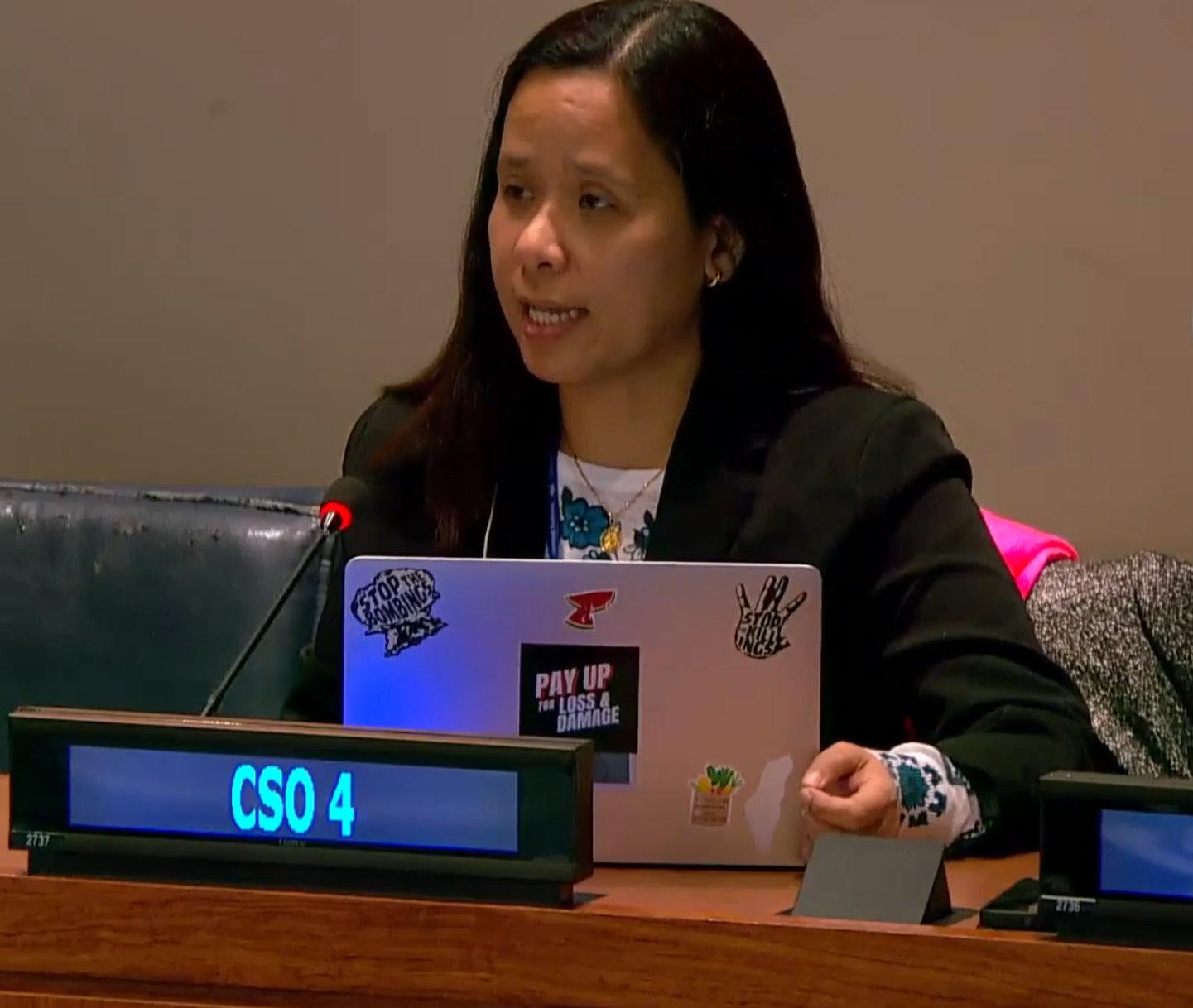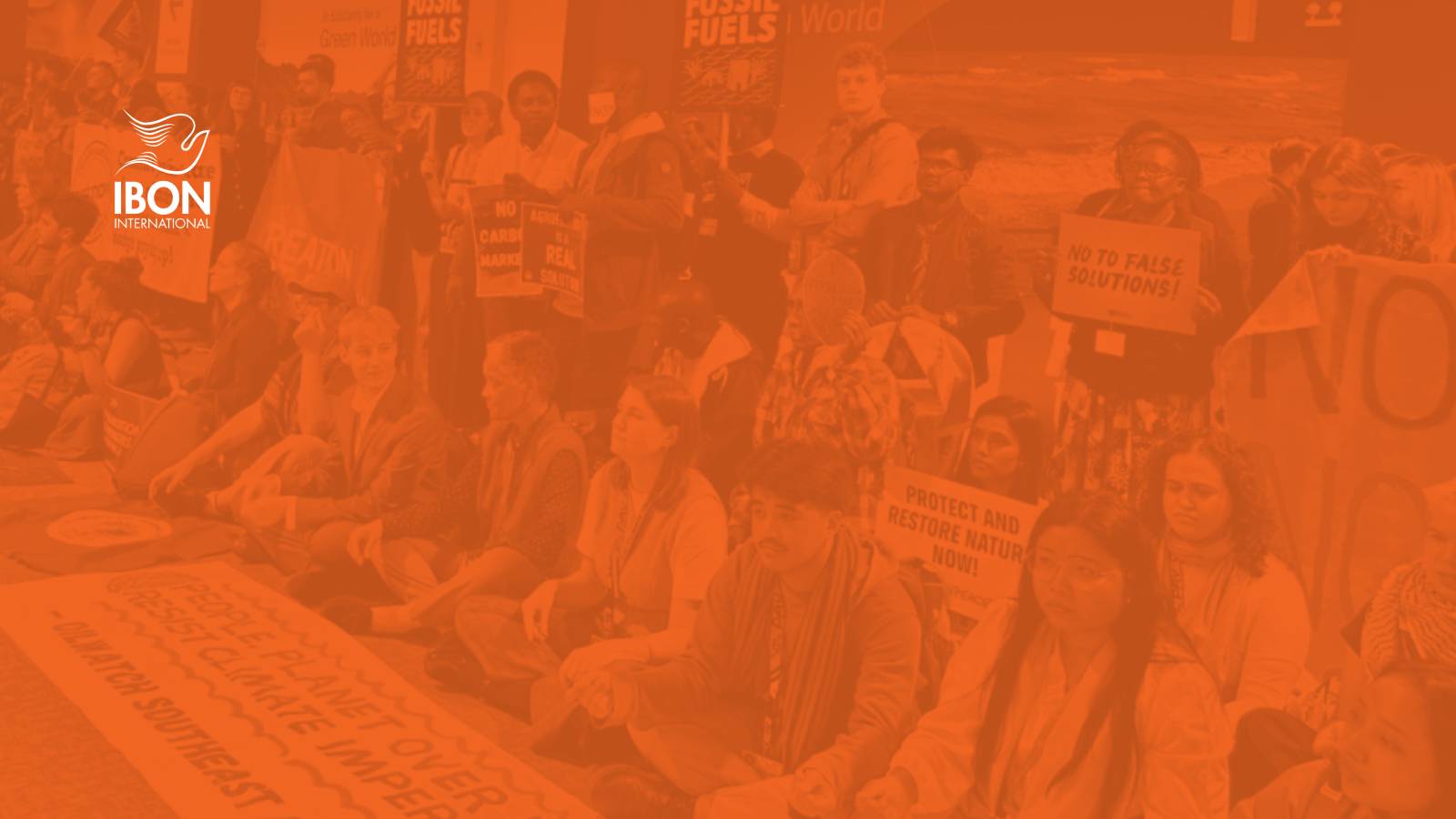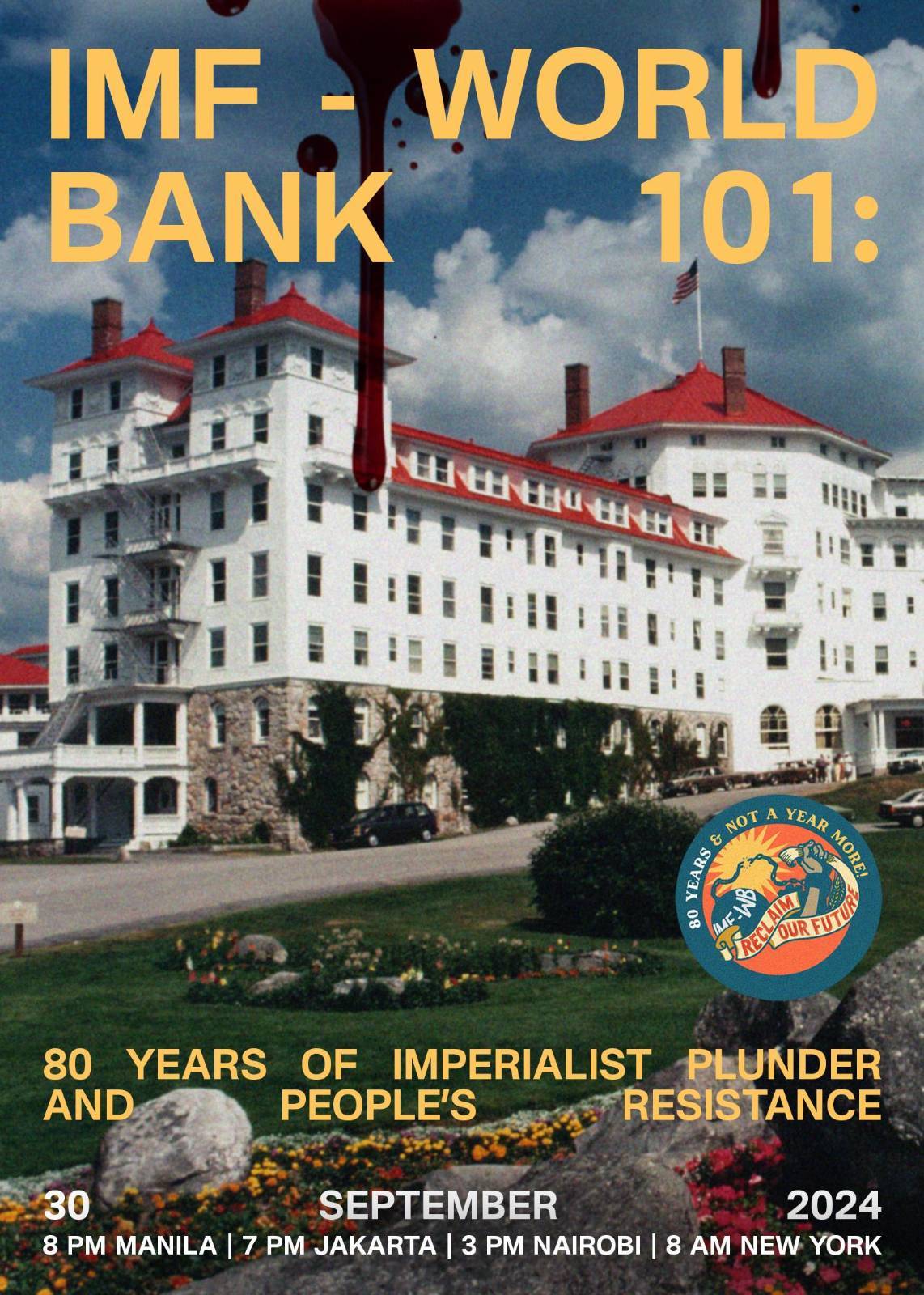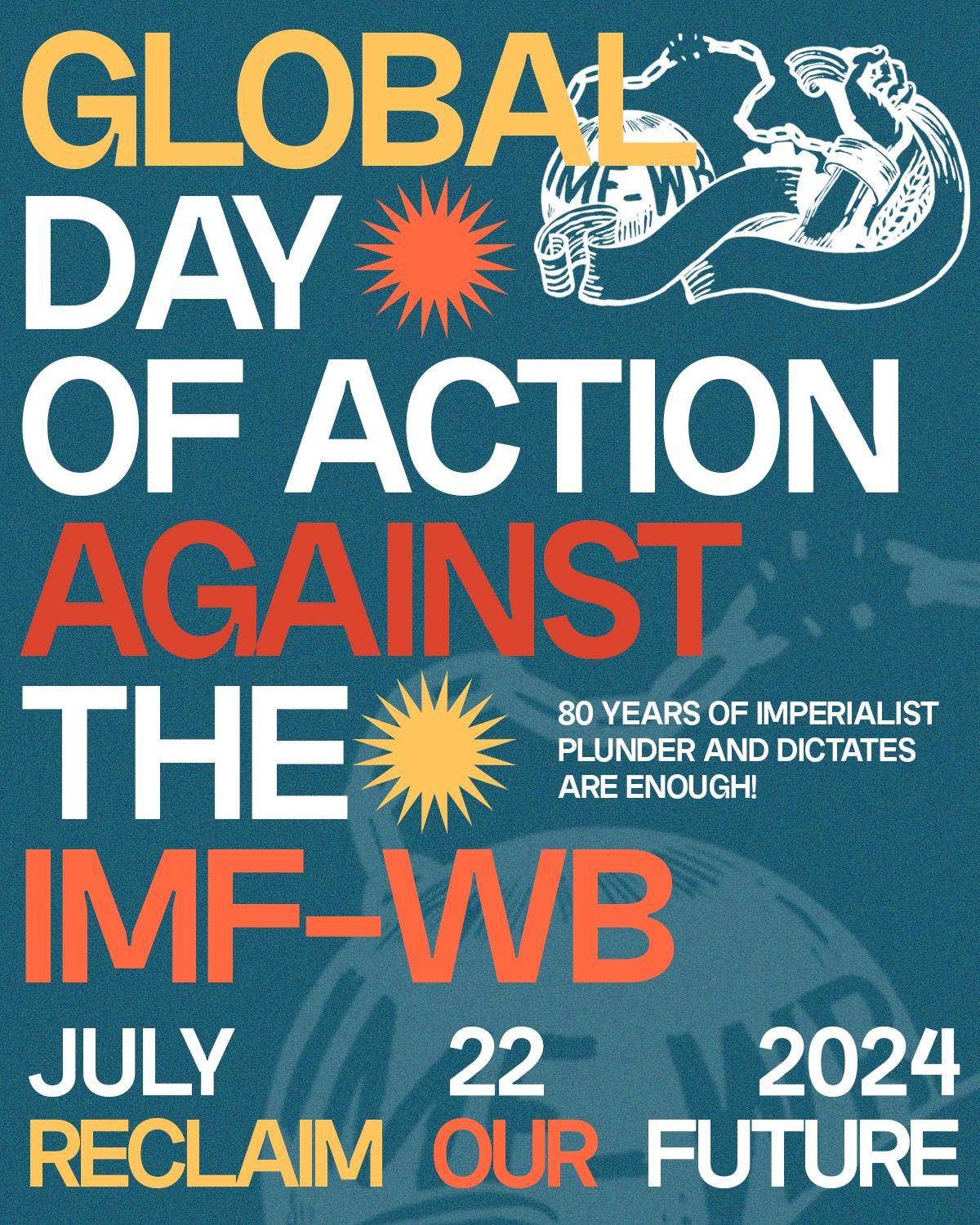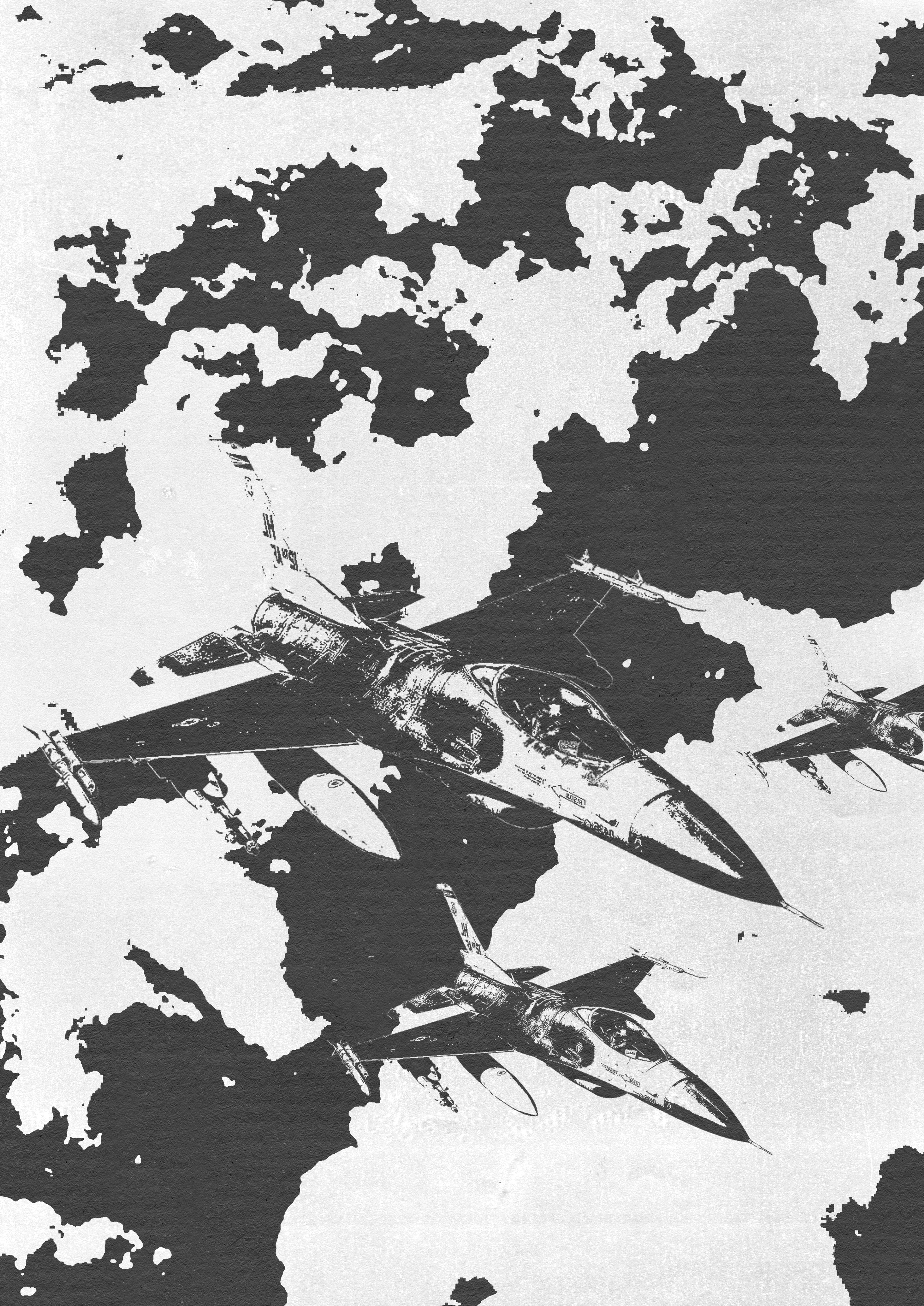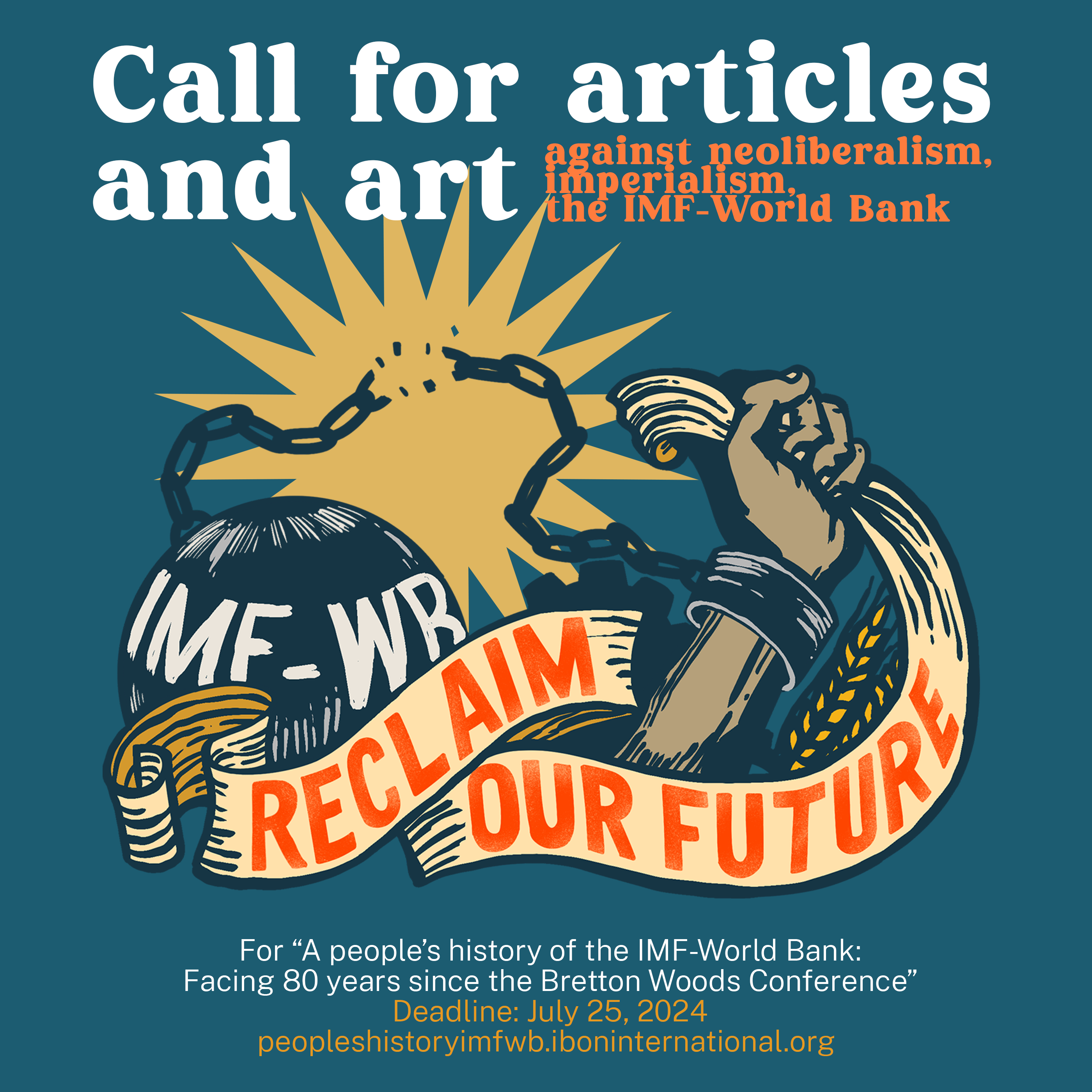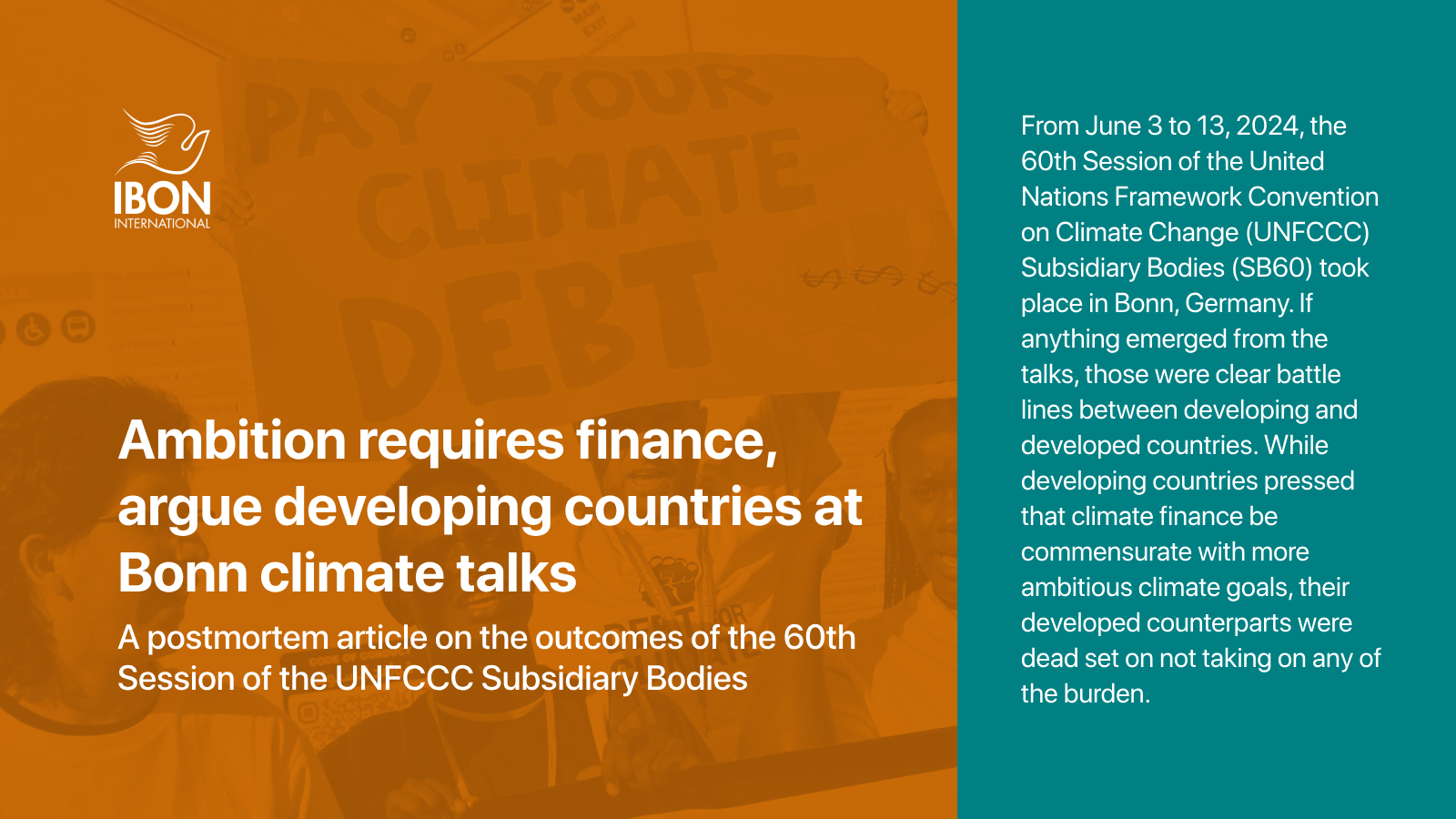Marcos Sr. closely worked with the US government to create a “golden age” – not for the common Filipinos but for foreign big businesses and the local elite during Martial Law, built on the plunder of the country’s resources and coffers, and violent suppression of people’s assertions for rights.
Fifty years after dictator Ferdinand Marcos Sr. declared Martial Law in the Philippines, his successor Ferdinand Marcos Jr., in collaboration with the previous administration under former President Rodrigo Duterte, sits at the helm, following a fraudulent and bloody election. Marcos Jr. evades the people’s commemoration of Martial Law, flying to the US for a six-day visit. He met US President Joe Biden on the sidelines of the United Nations General Assembly, and affirmed ties with American big businesses at the New York Stock Exchange.
IBON International joins social movements in demanding justice for victims of human rights violations, and in their calls to hold the Marcos family and their cronies accountable. We support the people’s efforts to forge a truthful memory of the grim economic and social realities under Martial Law, and combat the state’s campaign to distort history. IBON International traces its roots in the Filipino people’s resistance against the Marcos dictatorship. Our mother organisation, IBON Foundation, served as an alternative source of social and economic information amid censorship and self-serving state propaganda of the Marcos regime.
Painting a truthful account of Martial Law requires highlighting the major role of the US government in abetting the rights violations and economic directions of the Marcos dictatorship. Marcos Sr. closely worked with the US government to create a “golden age” – not for the common Filipinos but for foreign big businesses and the local elite during Martial Law, built on the plunder of the country’s resources and coffers, and violent suppression of people’s assertions for rights.
The US government propped up the two-decade Marcos dictatorship through economic and military support. The US-led International Monetary Fund and the World Bank Group lent a total of USD 5.5 billion to the Marcos regime which came with neoliberal economic restructuring that slashed wages, eased foreign exploitation of the country’s resources, crushed national industries, and promoted the labour export of Filipino workers. Marcos Sr. laid the foundation for the neoliberal path of the following administrations that deeply debased the Filipino people’s living conditions and economic rights.
US-led financial institutions and big corporations were also behind mega-infrastructure projects, such as the Chico River Dam Project and the Bataan Nuclear Power Plant, which were exploited by the Marcos family and cronies for their own interests. These projects were also known for displacing communities, violating people’s rights, and miring Filipinos further into debt. At the ouster of Marcos Sr. in 1986, public debt had bloated to USD 26 billion from USD 600 million in 1965. Marcos Sr. implemented automatic appropriations for debt servicing at the expense of budgets for social services and other government expenditures.
The US government propped up the two-decade Marcos dictatorship through economic and military support. The US-led International Monetary Fund and the World Bank Group lent a total of USD 5.5 billion to the Marcos regime which came with neoliberal economic restructuring that slashed wages, eased foreign exploitation of the country’s resources, crushed national industries, and promoted the labour export of Filipino workers.
The US government poured hundreds of millions of dollars in military support to the regime. In 1979, Marcos Sr. amended the 1947 Military Bases Agreement with former US President Jimmy Carter, which came with US military and economic support to the Philippines that amounted to USD 500 million from 1979-1984. This support grew to USD 900 million for 1984-1989. The US sold and channelled the weapons and military hardware used by the dictatorship in counterinsurgency campaigns that primarily targeted poor rural communities.
The US government had also shown consistent support to the dictator until the regime ceased to be beneficial to its interests. Since the beginning of his election in 1981, the administration of former US President Ronald Reagan expressed support to the Marcos dictatorship with consecutive official high-level visits to Manila and the reception of Marcos Sr. in the White House in 1982. The US government also sponsored the exile of Marcos Sr. and his family in Hawaii, where the former succumbed to illness.
Marcos Jr. follows his predecessor’s steps in fortifying his power by forging close relations with US power. In affirming the interests of American big businesses in his address at the New York Stock Exchange, he said, “I cannot see the Philippines in the future without having the United States as a partner”. Social movements in the Philippines and across the world continue to defy the Marcos-Duterte regime, characterised by a deepening economic crisis amid the continuation of neoliberal policies and escalating state repression, including renewed attacks against activists. #


